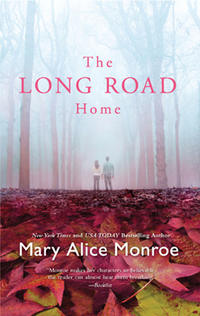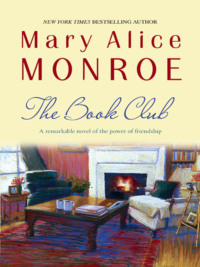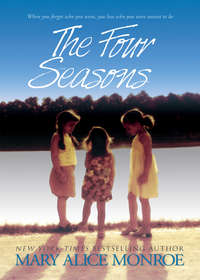
Полная версия
Sweetgrass
It had been a long, hard journey. Now, years later, his tires were worn and his speakers were blown. Before leaving Montana, he’d stuffed what little extra money he had into his wallet, enough to get him home.
Home. Morgan surveyed the impenetrable wall of bush and pines that surrounded the family property from the prying eyes of folks zooming along busy Highway 17. A ragged culvert ran along the road—like a moat around a castle, he thought, mulishly kicking the gravel. He walked off to open the heavy gates. A moment later, he drove into his family’s estate.
The sunlight dappled the road as the truck crawled along. In the surrounding trees, birds and squirrels chattered at the dawn, and from the ground, a quail fluttered, squawking, into the air. At every turn, sights brought back memories he’d kept pushed back for a long while. He saw the crumbling ruins of the old smokehouse where, in colonial time, meat was preserved. Not far from it, near an underground stream of water, was the foundation of what was once a dairy. Milk and cheese used to be kept cold in the frigid waters. The spot had been a favorite play fort for the Blakely children.
Farther on by the western border lay a large peach orchard. Morgan frowned with worry at the sorry condition of the once meticulously maintained grounds. Beyond that lay the family graveyard. A little farther up the road, the trees opened to reveal a vast, cleared and mowed space that was used by the parish for Sunday picnics, oyster roasts, turkey shoots and other church functions.
He rounded a final, wide curve in the road. What he saw made him bring the truck to a stop. As the engine rumbled beneath him, he leaned forward on the steering wheel. The wave of homesickness surprised him.
Before him in the misty air of early morning was the long, formal avenue to his family home. Massive live oaks dripping lacy moss lined the narrow dirt road, sweeping low, like ancient sentries from a graceful time long gone. If the road’s culvert was the moat of this kingdom, he thought, then these noble oaks surely were her knights.
At the end of the long avenue, the Southern colonial house awaited him like a charming belle—petite, pretty and eager to welcome him into her warmth. His father loved the house like a woman—its slender white columns, the sweeping Dutch gambrel roof and the delicately arched dormers framed with quaint squares of glass. The low foundation was made of brick and oyster-shell lime, meant to last.
And it had. The house had survived two hundred years of storms, wars, tragedies and the vagaries of fortune. She was a survivor. His father had fondly referred to the house as having “pluck.”
Suddenly the front door swung open and a petite woman with hair as white as the house appeared on the threshold, clutching a pale-blue night robe close around her neck. Morgan swallowed hard with recognition. Why had he never noticed before how very much like the house his mother was? It dawned on Morgan that his father must have made that comparison many times, as well.
Morgan slowly rounded the circle, then stopped before the house. Blackjack bounded from the porch and scurried down the front stairs, tail straight up and barking in warning. Morgan cut the engine and the truck shuddered to a halt.
When did her hair grow so white? he wondered. Or grow so frail a gust of wind could carry her away? The years seemed to stretch long between them as he stared out through the dark windshield and calculated that his mother was now sixty-six years old.
The black Lab had aged, too. Blackjack ran on stiff legs and his muzzle was completely white now, but he could still raise the dead with his barking. Morgan pushed open the door. Instantly, the large dog bounded forward, lowering his head, ears back, sniffing hard.
“Hey there, Blackjack,” Morgan said as his feet hit the earth and he slowly extended his hand. “Remember me?”
At the sound of his voice the dog took a step closer, placing his gray muzzle right to the hand. Then recognition clicked in the dog’s cloudy eyes, and with a sudden leap Blackjack began yelping and barking with unbridled joy.
“You’re getting old, aren’t you, Blackie, ol’ boy?” Morgan said with a laugh, playfully petting the old dog and feeling a surge of affection for being welcomed with such devotion.
“Morgan!”
The sound of his mother’s voice pierced Blackjack’s clamor. Morgan closed his eyes for a moment, then slowly raised himself and looked over his shoulder toward her. His gaze locked with a pair of blue eyes that were shining bright through tears. It had been a long time since they’d seen each other. Mother and son stood staring for an intense moment, then she flung open her arms and took a faltering step forward.
Morgan wiped his hands on his thighs and then closed the distance to her side in a few long strides. Mama June reached up to wrap her arms around him in a trembling embrace and instantly Morgan was enveloped again in the scent of gardenias.
“Oh, my dear, dear boy!” she cried. “It’s so good to see you. Shame on you for staying away so long. I’ve missed you!”
She felt his resistance in the stiffness of his arms and it pained her deeply, yet she clung a moment longer, as though her love would be strong enough to melt his iciness.
He felt awkward in the sudden emotion and drew back with shuffling steps, offering her a perfunctory kiss on the cheek.
“Hello, Mama June.”
She held him at arm’s length. “Darlin’, let me get a good look at you. You’re so thin! Aren’t you getting enough to eat?”
“I eat fine.”
“I’ll just bet you do…. Don’t you worry, we’ll take care of that while you’re here.”
As her eyes devoured him, his did likewise. She was different somehow. Mama June had always been slender, but time had rounded her edges and softened her skin. Her face was sleep-worn and he figured Blackjack’s barking had awakened her. Yet she didn’t look tired—that wasn’t the right word. Older. It shocked him to see it.
In his mind, his mother was always the same age as the last time he’d seen her. She was a wren of a woman, with bright eyes that shone with curiosity and quick movements that, while graceful, reflected the swift turns of her thoughts. Her hair, still long, was now a snowy white and loosely bound in a thin braid that fell over one shoulder. It was a style both old-fashioned and reminiscent of a young girl’s.
He’d known she’d be older, of course. He’d not been home in years. But knowing it and seeing it were two different things. Yet her excitement colored her high cheekbones with a youthful flush, her joyous smile brought out deep dimples and her blue eyes sparkled like a light burning bright in a window.
Mama June grinned with elation. “I…I just can’t believe you’re here! It’s a blessing! A true blessing. Oh, Morgan, what a surprise! Why didn’t you call and let us know you were coming?”
“I didn’t want to put anyone out. I figured y’all had your hands full with Daddy right now.”
Her smile slipped. “You got my message?”
Morgan nodded. “And I talked to Nan.”
Confusion flickered in Mama June’s eyes. “Nan? Your sister didn’t tell me she spoke with you.”
“I asked her not to. I wasn’t trying to be secretive, nothing like that. I just wasn’t sure what I was going to do and, well, I didn’t want to…”
“Get my hopes up?”
He laughed shortly and shuffled his feet. “Yeah, I guess.”
Her brows furrowed. “What made you decide to come?”
He seemed surprised by the question. “I couldn’t not come. I know it’s been strained between us, but hell, he’s still my father.”
“Oh, Morgan, I’m sorry not to have been the one to tell you. I tried to call you right after your father was brought to the hospital, but there was no answer. I kept trying and finally just left the message. It wasn’t an easy message to leave and I hated doing it. I’m glad Nan at least called you.”
“She didn’t call me. I called her. After I got Daddy’s phone message.”
She skipped a beat and her eyes widened. “His…his what? Preston called you? When?”
“A little over a week ago. Out of the blue. As luck would have it, I was on a hunting trip and didn’t get the message till the following week.” He paused, releasing a short laugh. “When I heard his voice on the machine, I sat hard in the chair, I can tell you. I listened to that message over and over again, just so I could believe it was the ol’ coot. Then I got your message.” He paused. “It hit me pretty hard. I just grabbed a map and every dollar in the house, got in the truck and drove south.”
Mama June’s jaw was slack with disbelief. “Preston called you…”
“You didn’t know that he’d called?” Morgan asked, surprised.
She shook her head. “What did he want?”
“I was hoping you could tell me. He was vague, almost stumbling, like he didn’t really know what to say. In the end, he muttered something about wanting to talk and then he hung up.”
Morgan saw a multitude of emotions flutter through his mother’s eyes as she stared off a moment and brought her fingertips to her lips. He remembered she was tenderhearted, and moved to comfort her. “Are you all right?”
“Me? Oh, yes, dear, I’m fine,” she replied perfunctorily, but this was her pat answer and Morgan didn’t believe her. She tilted her head and said with a tone of sadness, “Your father never fails to amaze me, that’s all.”
“Well, you could’ve knocked me over with a feather, that’s for sure.”
They shared a brief, commiserating laugh. The unpredictable nature of Preston Blakely was a family joke, and sharing it, Morgan felt one step closer to home.
“How is he?” he asked.
Her smile faltered as her tone grew troubled. “He’s not good. It was a very severe stroke. The doctors don’t know if he’ll walk again. Maybe not even talk.”
Morgan cursed under his breath. “I had no idea it was so bad.”
“What’s worse is knowing that beneath the still facade, he’s just as mad as a wet hornet to be lying in bed, cooped up in that hospital. You know your daddy. He never spent more than a day in bed, no matter how sick he was.”
“It’s ironic.”
“It’s unfair, is what it is.” Mama June tightened the sash around her waist and drew herself up. “There’s a lot to be discussed, but it’s getting chilly standing out here in my slippers and robe. And you have an empty stomach.” She slipped her arm inside his and gave it a gentle squeeze. “Come inside where it’s warm and let me feed you some breakfast. You must be famished.”
“Sounds great.” Morgan quickly grabbed a dusty black duffel bag from the back of the truck.
His vehicle, his clothes, even his luggage seemed coated with dust, like a caravan arriving from the desert. He’d traveled many miles. And now he was home, she thought, her heart near bursting. She led the way to the house, her critical eye taking in the shabby appearance of her usually pristine home. She’d been too preoccupied with Preston’s stroke to notice. She flushed that the porch settee cushion was covered with Blackjack’s hair, that dirt and cobwebs collected around the base of the empty porch planters. Here it was April, and she’d yet to fill them with pansies.
Blackjack paused at the foot of the stairs, eyes beseeching.
Mama June turned and pointed, directing the dog to his den under the porch. “I don’t know why I bother. He’ll likely sneak up soon as our backs are turned. Been doing that ever since your father took to the hospital. I expect Blackjack’s looking for him. I can’t recall when Preston has been away from the place for more than a day.”
“Seems pretty quiet around here. Is Nona around?” asked Morgan.
“Goodness, no! Nona retired soon after you left. Keeps herself busy with her sweetgrass baskets. Our paths haven’t crossed much since then, but I stop by her stand for a catch-up from time to time.”
“House got too dull without me, I reckon.”
“Oh, I’m sure that was the reason,” Mama June replied as she opened wide the front door.
The sunlight filled the front hall and fresh air gusted in. Suddenly she felt full of joy, like a young mother again, calling her child into the house.
“Come in, Morgan. Welcome home!”
Mama June’s heart skipped as, grinning, she ushered Morgan into the house. There was an awkward pause as they stopped in the high-ceilinged foyer and considered what to do first. It was finally decided that they’d freshen up before breakfast. Mama June led the way up the wide staircase, flicking on lights before her. Behind her, Morgan’s head turned from left to right in a sweeping survey. His worried brow told her he’d noticed how the once-lustrous creamy walls had darkened to a dusky gray and how the silk on the antique chairs was as threadbare as the festoons of curtains that flowed to the frayed carpeting on the stairs, worn in spots to the wood.
“I gather Daddy still puts every penny into the farm?” he asked.
“And he owes another penny,” she replied lightly. “Plus ça change, plus c’est la même chose.”
“Well, it’s nice to see ol’ Beatrice never changes,” he teased, pointing to a painting of a straight-backed, stern-faced woman in nineteenth-century clothes wearing a bright red cap. Beatrice Blakely was a founding member of the Blakely clan in the colonies, second wife of Oliphant, “Ol’ Red,” who had arrived on American soil earlier with a land grant.
“You ever figure out what she was scowling about?”
Mama June snorted. “Taxes, no doubt. Taxes have been the bane of this family’s existence since Beatrice’s day. Morgan…” The sentence was left hanging for he’d moved on to the bedroom down the hall and opened the door.
Mama June paused but her gaze followed him. She saw him standing quietly, still holding on to his bag as he looked around his old room. She took a breath and hurried across the hall to the dimly lit room.
“I wish I’d had notice of your coming. I’d have opened things up for you.”
She made a beeline for the window. With a couple of firm tugs, she pulled back the heavy blue drapes. A flotilla of dust motes danced in the sunshine. She waved them away, her cheeks coloring. She went to the other window to open the drapes and pry wide that window, as well.
“I don’t come in these rooms much anymore,” she said, looking around with a frown. She turned toward him again, slapping the dust from her hands.
He hadn’t moved. He stood with a strange expression on his face as he took in the iron double bed covered in a navy crazy quilt and, over it, the ancient needlepoint rendition of the family crest. On the other walls hung paintings of the creeks, marsh and sailboats that he’d loved so much growing up. Under one dormer sat his pine schoolroom desk and chair, its soft yellow wood scarred with scratches. Opposite it, his tall bureau was missing the same two pulls. The only things she’d removed were his motley collection of dusty liquor bottles and posters of long-forgotten rock groups.
“It’s like I’ve stepped back in time,” he said.
I wish, she thought, but said nothing as she puttered about the room, absently moving a chair an inch, tugging at the bedspread.
“Everything is pretty much as you left it. We knew you’d be back, sooner or later. I’ll tidy it up this afternoon.”
“It’s a sight better than what I’m used to.”
He dropped his bag, then stretched his arms wide, yawning as loud as a bear rousing from hibernation. The boyish gesture caught her by surprise, spiraling her back in time to when a young Morgan took great pleasure in yawning wide or belching loud, more to shock her than for anything else. She half smiled at the memory.
“I suppose you still know where everything is,” she said, wringing hands that longed to reach out and touch him. Her heart ached just seeing him again—her son here in his old room! Yet she didn’t dare embarrass him with maudlin shows of affection. He’d always been reticent to receive her hugs and backed off from kisses. Today, the invisible wall he’d built around himself was tangible.
“There should be fresh towels and soap in the bathroom. I’ll go check to be sure. It’s been so long since we’ve had an overnight guest.” Then, realizing she’d just put her son into the category of guest, she stumbled on to say, “But you’re not a guest, of course!” She clasped her hands tight. “Let me know if you need anything else.”
“Yep. I’m fine. Thanks,” he replied, scrubbing his face with his palms.
“You take a minute and rest, hear? You look exhausted.”
“I just might do that. It was a long drive.”
“Well…” She faltered again for words. “I best go see to breakfast.”
He only nodded so she merely departed, closing the door quietly behind her.
She stood for a moment outside the room, gathering her wits. Was this really happening? Morgan was here? She glanced at her watch. Eight o’clock already. And she still in her nightgown! It was high time she made herself decent, she thought, hurrying to her own room at the other end of the hall.
With the swiftness of routine, she quickly dressed into her usual daytime attire of a long khaki skirt, a crisp cotton blouse and comfortable shoes. Her fingers deftly wound her braid into a bun and fastened it with a few bobby pins. Then she splashed her face with cool water and applied a swipe of color across her lips. She wasn’t a vain woman and neither was she much interested in fashion. Her day clothes were comfortable, and for special occasions she relied on classic quality that stood the test of time. Though gravity had taken its toll, her dress size hadn’t changed dramatically over the years, and some of the dresses in her closet dated back to the earlier days of her marriage when they’d entertained more frequently. It always amused her when her vintage gowns came back in style.
After a quick glance in the mirror, she felt much more together and ready to face her day. She wrapped her happiness around her like a shawl and went out to begin the myriad chores formulating in her mind.
A short while later, Mama June was standing at the stove stirring grits with one hand and, with her other, making a list of things she had to get done that day. First on the list was to announce Morgan’s homecoming to the family and to invite them for Sunday dinner. At-Home Sunday Dinner had been a family tradition for generations, but like so many other traditions, this one had fallen by the wayside because of busy schedules, folks moving off and the altered priorities of modern-day living. Now the family dinners were relegated to holidays and reunions.
Certainly, Morgan’s return was enough reason for a family celebration, she thought, her lips curving in anticipation. It’d been ages since she’d spread the white damask across the dining room table and lit the candles in the polished candelabra. She’d make sherried she-crab soup, Morgan’s favorite. Chicken fricassee might be nice, she thought, jotting down ingredients on her list.
Oh, how she’d love to have Nona’s biscuits. Her smile broadened. Nona’s biscuits… They were pure magic, like biting into air. She couldn’t remember the last time they’d enjoyed them. From time to time she stopped by Nona’s basket stand along Highway 17 to catch up, though it had been a while. Thoughts of Nona nagged as she added a few more items to her grocery list.
“Something smells good.”
Mama June’s head darted up to see Morgan enter the room. The sight of his bent head and lanky form in her kitchen once again filled her heart. His thick hair was spiky and damp from his shower, and his shirt of a pale blue that matched his eyes was wrinkled but fresh. He appeared a bit more relaxed, though his face still had the chalky sheen of deep fatigue.
“Coffee’s hot, country ham is warming in the oven and the tasso gravy is thickening nicely,” she said in a cheery voice. “Looks like you could use some of all of the above. Go on, darlin’, sit down now. The table’s all set. The Post and Courier is there, too. You might enjoy catching up on the local news.”
“Thanks,” he replied, moving with a preoccupied shuffle to the table.
She hummed softly as she fell into the old pattern of preparing breakfast for her son. Time was, every morning she’d fussed like a hen at her chick, urging him to eat a hearty meal before he dashed from the house, hurrying because he’d slept too late. Morgan had always been as slim as a beanpole, no matter how much or how often he ate. Her gaze drifted back to her son. He seemed so different, yet so much the same. The cut of his jaw was like her own. His blue eyes like his father’s. His brown hair was still thick and in need of a good haircut, and he’d kept that lean, lanky physique, too, she thought, watching him stretch his long legs under the table. But the boy had filled out to a man in his chest and shoulders.
Her heart constricted as she began filling his plate with grits, country ham and eggs. “So, tell me,” she said, opening the conversation. “What’s going on up in the wilds of Montana?”
“Nothing much.”
“I gather you still like it way out yonder?”
“It suits me fine.”
“I don’t know how you manage, living alone so far out. You’re so isolated. I’d think you’d get pretty lonely.”
“I do all right.”
So he was not going to be forthcoming. Well, there was more than one way to eke out information. She cut the heat on the stove, then brought the plate over and set it down in front of him.
He stared at the food with eyes as wide as saucers. The food was piled high, overflowing the edges of the porcelain. A giant couldn’t eat all of it and she felt a flush of embarrassment. It was obvious she was trying so hard to please.
“I’ll try to do it justice,” he said, picking up a fork.
“Perhaps I got a little carried away. Just eat what you can,” she said, rubbing her palms on her apron. “I’ll freshen up your coffee.”
She hurried to add coffee to his cup, then poured a cup for herself. To keep from standing and staring at him, she began rinsing out the frying pan.
“Last time you wrote,” she ventured, “you said you were finished with all that bison-protection activity you were so involved in.”
“We got legislation passed. Things are better. It was time to move on. Besides, the politics were demoralizing.”
“But I don’t understand. Didn’t you win?”
“It wasn’t about winning or losing. It was about preserving a natural resource.”
She was being inquisitive and he was cutting her off again. It was a familiar impasse. Their few phone calls over the years had always left her digging for clues and feeling frustrated by the time she lowered the telephone receiver.
Mama June’s brows furrowed as she returned to her dishes. She was silent for a moment, but when she was drying the pan, she glanced to the table and noticed that he’d already set his fork back on the table after only a few bites.
“Too much salt?” she asked, concerned. “Preston always tells me I’m a heavy salter.”
“No, it’s fine.” He picked up the fork again. “I was walking around upstairs, just looking around,” he said, his eyes on the fork he was twiddling between his fingers. “I went into Ham’s room.” He set the fork down. “I noticed that Daddy’s things are in there.”
Mama June carefully folded the drying towel and set it on the counter. Morgan looked up at her with question burning in his eyes.
“Yes,” she replied at length. “That’s his room now.”
“Since when have you had separate bedrooms?”
“I can’t really remember for how long now.” She could be evasive, too.
She hesitated, wondering how much to share with her son. He wasn’t a boy, no matter how much she sometimes thought he was. He was a grown man and familiar with the ways of life. The trouble between her and Preston had been years in the making, a highly private, personal story between a husband and a wife.
She never had been one for speaking out and voicing her inner thoughts and troubles to others. The way some women went on about personal matters always made her feel as if she’d peeked through their windows. She’d always been one to close her curtains at night, and to her mind, what room was more personal than the bedroom? Son or no, this wasn’t really any of Morgan’s business.









